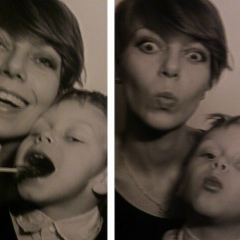Пять лет назад мы во ВКонтакте запустили мобильную игровую платформу.
Это был мой первый проект в геймдеве и он проложил мне путь в индустрию. На старте проекта я пугался аббревиатур CPI и LTV, а что такое «геймдизайн» не понимал вообще. Энтропия в геймдеве была близка к 100%. Разработка и запуск платформы заняли 4 месяца и за это время я получил колоссальное количество опыта в играх и инфраструктуре вокруг них. Не представляю, как и где еще можно было получить столько же.
Индустрия и такая работа были в новинку. Я тогда был кем-то вроде биздева/продюсера/developer relation/account/product/project/pr менеджера в одном лице. И я совершил, кажется, все ошибки новичка, какие только можно было, большие и мелкие. Потому хочу поделиться уроками, которые я вынес для себя из того запуска и с тех пор не забываю.
1. Самодисциплина = умение работать самостоятельно, без внешнего контроля и напоминаний. Никто не будет тебя пинать, кроме тебя самого. Если не умеешь себя пинать, что ты вообще делаешь в it?
2. 16-часовой рабочий день бесполезен. Работая на износ, отнимаешь у себя продуктивное время из следующего дня. Лучше стабильно и ритмично работать пять дней в неделю, чем взлететь в один день и потом 3 дня ходить сонным и тупить в монитор.
3. Один блокнот, один трекер, один лист А2 под ноутбуком. Сокращай количество мест, в которых можно делать пометки и записывать идеи. Как только площадь свободного места множится, начинаешь думать, как организовать записи. Теряешь время. А потом еще вспоминать, что куда записал.
4. «А ты можешь не начинать вопросы с “А ты можешь..”?». Команда может всё. Кроме одного — переносить пседво-вежливость. О важном спрашивай в лоб, без прелюдий.
5. Всё, что может быть неправильно понято, будет неправильно понято. Описывай все мелочи и не оставляй места для фантазии. Всё, что очевидно тебе, особенно в описании продукта, будет трактовано некорректно, неполностью интегрировано или вообще забыто.
6. Никогда не называй точные сроки. Мы были уверены в запуске в конце мая, а в итоге запустились на рубеже июня и июля по независящим от нас причинам. Объяснять партнерам, почему сроки сместились, еще хуже, чем осознавать, что сроки зафакапил ты.
7. Пиши всю редко меняющуюся информацию в документацию и гайды. Отправляй всех читать эти документы. Время личного общения лучше потратить на разбор хитрых кейсов, чем обсуждение, куда загружать баннеры для фичеринга.
8. Строй прозрачные структуры. Ставь всех в одинаковое положение. Платформа всегда строится на долгосрочную перспективу, активности ради сиюминутной выгоды 100% подорвут доверие.
9. Почти любая информация от платформы служит катализатором активности в индустрии и приводит к пересмотру стратегий в студиях. Не заставляй партнеров суетиться. Выдавай только ту информацию, в реализации которой уверен на все сто.
Это был мой первый проект в геймдеве и он проложил мне путь в индустрию. На старте проекта я пугался аббревиатур CPI и LTV, а что такое «геймдизайн» не понимал вообще. Энтропия в геймдеве была близка к 100%. Разработка и запуск платформы заняли 4 месяца и за это время я получил колоссальное количество опыта в играх и инфраструктуре вокруг них. Не представляю, как и где еще можно было получить столько же.
Индустрия и такая работа были в новинку. Я тогда был кем-то вроде биздева/продюсера/developer relation/account/product/project/pr менеджера в одном лице. И я совершил, кажется, все ошибки новичка, какие только можно было, большие и мелкие. Потому хочу поделиться уроками, которые я вынес для себя из того запуска и с тех пор не забываю.
1. Самодисциплина = умение работать самостоятельно, без внешнего контроля и напоминаний. Никто не будет тебя пинать, кроме тебя самого. Если не умеешь себя пинать, что ты вообще делаешь в it?
2. 16-часовой рабочий день бесполезен. Работая на износ, отнимаешь у себя продуктивное время из следующего дня. Лучше стабильно и ритмично работать пять дней в неделю, чем взлететь в один день и потом 3 дня ходить сонным и тупить в монитор.
3. Один блокнот, один трекер, один лист А2 под ноутбуком. Сокращай количество мест, в которых можно делать пометки и записывать идеи. Как только площадь свободного места множится, начинаешь думать, как организовать записи. Теряешь время. А потом еще вспоминать, что куда записал.
4. «А ты можешь не начинать вопросы с “А ты можешь..”?». Команда может всё. Кроме одного — переносить пседво-вежливость. О важном спрашивай в лоб, без прелюдий.
5. Всё, что может быть неправильно понято, будет неправильно понято. Описывай все мелочи и не оставляй места для фантазии. Всё, что очевидно тебе, особенно в описании продукта, будет трактовано некорректно, неполностью интегрировано или вообще забыто.
6. Никогда не называй точные сроки. Мы были уверены в запуске в конце мая, а в итоге запустились на рубеже июня и июля по независящим от нас причинам. Объяснять партнерам, почему сроки сместились, еще хуже, чем осознавать, что сроки зафакапил ты.
7. Пиши всю редко меняющуюся информацию в документацию и гайды. Отправляй всех читать эти документы. Время личного общения лучше потратить на разбор хитрых кейсов, чем обсуждение, куда загружать баннеры для фичеринга.
8. Строй прозрачные структуры. Ставь всех в одинаковое положение. Платформа всегда строится на долгосрочную перспективу, активности ради сиюминутной выгоды 100% подорвут доверие.
9. Почти любая информация от платформы служит катализатором активности в индустрии и приводит к пересмотру стратегий в студиях. Не заставляй партнеров суетиться. Выдавай только ту информацию, в реализации которой уверен на все сто.
Five years ago, we launched a mobile gaming platform on VK.
This was my first gamedev project and it paved my way into the industry. At the start of the project, I was frightened of the abbreviations CPI and LTV, but I did not understand what “game design” was at all. Gamedev entropy was close to 100%. The development and launch of the platform took 4 months and during this time I received a tremendous amount of experience in games and the infrastructure around them. I can not imagine how and where else it was possible to get as much.
Industry and such work were new. I was then something like a bizdev / producer / developer relation / account / product / project / pr manager all rolled into one. And I seem to have made all the mistakes of the novice that could be, big and small. Therefore, I want to share the lessons that I learned for myself from that launch and since then I have not forgotten.
1. Self-discipline = ability to work independently, without external control and reminders. No one will kick you except yourself. If you don’t know how to kick yourself, what do you do in it?
2. A 16-hour day is useless. Working for wear, you take away productive time from the next day. It is better to work stably and rhythmically five days a week than to take off in one day and then go sleepy for 3 days and go blunt in the monitor.
3. One notebook, one tracker, one A2 sheet under the laptop. Reduce the number of places where you can take notes and write down ideas. As soon as the free space multiplies, you start thinking how to organize the records. Wasting your time. And then still remember what I wrote down to.
4. "And you can not start the questions with" And you can .. "?". The team can do anything. In addition to one - to tolerate pseudo-politeness. Ask about the important in the forehead, without preludes.
5. Everything that can be misunderstood will be misunderstood. Describe all the little things and do not leave room for imagination. Everything that is obvious to you, especially in the product description, will be interpreted incorrectly, not fully integrated or even forgotten.
6. Never give exact dates. We were confident in the launch at the end of May, and as a result we launched at the turn of June and July for reasons beyond our control. To explain to partners why the deadlines have shifted is even worse than realizing that you are deadlines.
7. Write all the rarely changing information in the documentation and guides. Send everyone to read these documents. It is better to spend personal communication time on parsing tricky cases than discussing where to upload banners for feature-writing.
8. Build transparent structures. Put everyone in the same position. The platform is always built for the long term, activity for the sake of momentary benefits of 100% will undermine confidence.
9. Almost any information from the platform serves as a catalyst for activity in the industry and leads to a review of strategies in the studios. Do not make partners fuss. Give out only the information in the implementation of which I am one hundred percent sure.
This was my first gamedev project and it paved my way into the industry. At the start of the project, I was frightened of the abbreviations CPI and LTV, but I did not understand what “game design” was at all. Gamedev entropy was close to 100%. The development and launch of the platform took 4 months and during this time I received a tremendous amount of experience in games and the infrastructure around them. I can not imagine how and where else it was possible to get as much.
Industry and such work were new. I was then something like a bizdev / producer / developer relation / account / product / project / pr manager all rolled into one. And I seem to have made all the mistakes of the novice that could be, big and small. Therefore, I want to share the lessons that I learned for myself from that launch and since then I have not forgotten.
1. Self-discipline = ability to work independently, without external control and reminders. No one will kick you except yourself. If you don’t know how to kick yourself, what do you do in it?
2. A 16-hour day is useless. Working for wear, you take away productive time from the next day. It is better to work stably and rhythmically five days a week than to take off in one day and then go sleepy for 3 days and go blunt in the monitor.
3. One notebook, one tracker, one A2 sheet under the laptop. Reduce the number of places where you can take notes and write down ideas. As soon as the free space multiplies, you start thinking how to organize the records. Wasting your time. And then still remember what I wrote down to.
4. "And you can not start the questions with" And you can .. "?". The team can do anything. In addition to one - to tolerate pseudo-politeness. Ask about the important in the forehead, without preludes.
5. Everything that can be misunderstood will be misunderstood. Describe all the little things and do not leave room for imagination. Everything that is obvious to you, especially in the product description, will be interpreted incorrectly, not fully integrated or even forgotten.
6. Never give exact dates. We were confident in the launch at the end of May, and as a result we launched at the turn of June and July for reasons beyond our control. To explain to partners why the deadlines have shifted is even worse than realizing that you are deadlines.
7. Write all the rarely changing information in the documentation and guides. Send everyone to read these documents. It is better to spend personal communication time on parsing tricky cases than discussing where to upload banners for feature-writing.
8. Build transparent structures. Put everyone in the same position. The platform is always built for the long term, activity for the sake of momentary benefits of 100% will undermine confidence.
9. Almost any information from the platform serves as a catalyst for activity in the industry and leads to a review of strategies in the studios. Do not make partners fuss. Give out only the information in the implementation of which I am one hundred percent sure.

У записи 40 лайков,
0 репостов,
1225 просмотров.
0 репостов,
1225 просмотров.
Эту запись оставил(а) на своей стене Максим Бабичев





























































